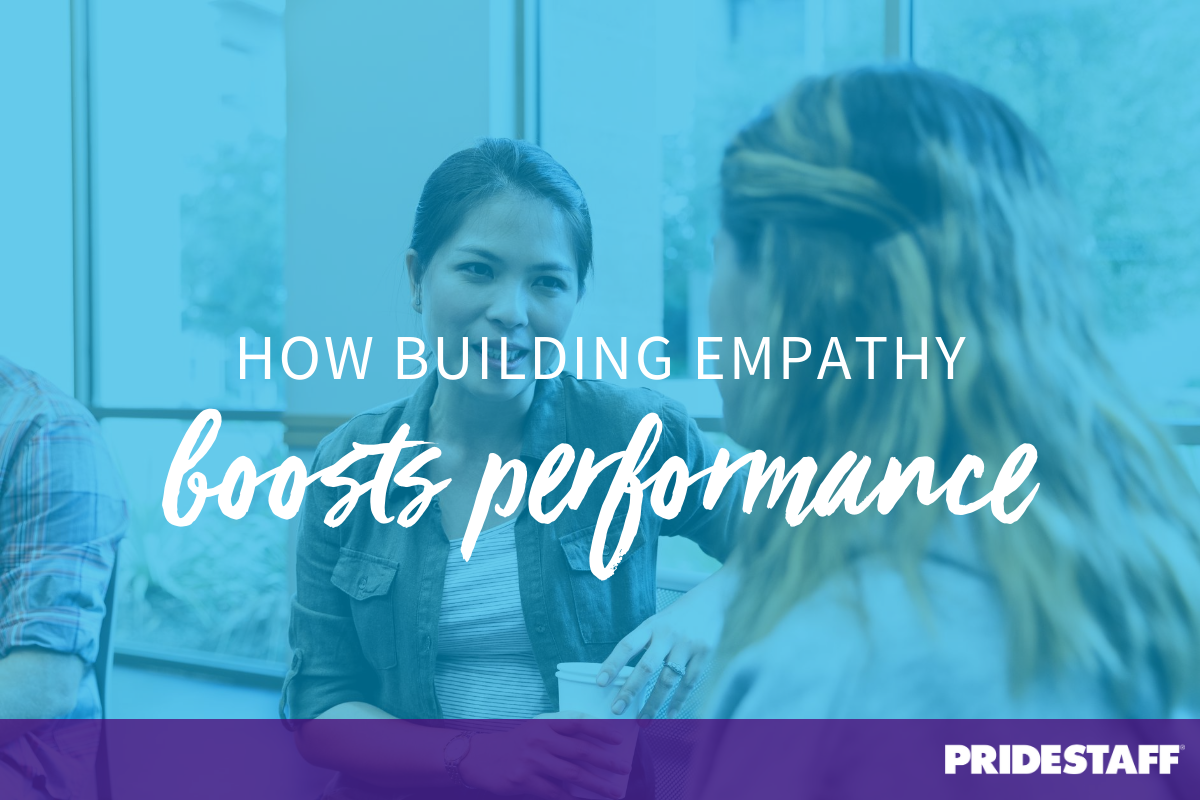How Are You? Why Building an Empathetic Workplace Can Drive Performance and Profit

A recent survey published in Human Resource Executive shows the tremendous impact the pandemic has had on our workforce’s mental health:
- 88% of workers reported experiencing moderate to extreme stress.
- Nearly seven in 10 employees indicated that the pandemic has been the most stressful time of their professional career.
These numbers confirm what you already know about your employees: Many are anxious, stressed out, and possibly overwhelmed. Feelings like these are more than inconvenient; they kill productivity. Among the workers reporting stress in the study above, 62% lost at least one productive hour a day, and 32% reported losing two or more hours each day because of pandemic-related stress.
When was the last time you reached out to ask employees, “How are you?”
This simple gesture of empathy can be incredibly powerful. As we mentioned in an earlier post, studies cited in a recent Forbes.com article demonstrate why building an empathetic workplace is essential:
- Empathy drives loyalty. Employees who feel valued, understood, and cared about trust you more. Over time, that trust builds greater loyalty.
- Empathy increases engagement. Asking about and acknowledging how employees feel makes them more likely to reciprocate and care more about their work.
- Empathy fuels teamwork. When you’re empathetic toward your team, it creates a positive ripple effect throughout your organization. People are more understanding of and helpful toward one another – decreasing conflicts and improving collaboration.
- Empathy drives creativity. By extension, greater engagement and enhanced collaboration naturally lead to higher discretionary effort, new ideas, and more innovation.
Tips for Building a More Empathetic Workplace
- Read this post on empathy in the workplace. In it, we share four ways to lead with empathy.
- Make sure your company leads by example. In a 2019 survey, 92% of CEOs said their organization was empathetic – but only 72% of employees agreed. Ask for honest feedback from your staff to ensure there’s no disconnect between how you think you’re leading and how employees perceive your actions.
- Get comfortable with being uncomfortable. Emotional trials, financial problems, personal insecurities, and more fuel stress in your employees. To equip them to perform at their best, you need to accept them as whole, fallible beings and be willing to talk about difficult, messy, or sad situations. When employees know that they can be themselves on the job, they naturally do better work.
- Judge less. Each of us is a work in progress. We all make mistakes and have bad days. If an employee isn’t performing to expectations, avoid the impulse to make a snap judgment. Instead, consider the situation from their perspective. Have an honest conversation to get to the root of the issue. Then, focus on the future and discuss solutions that promote their growth and overall well-being.
Your employees are humans. Right now, they need more understanding, reassurance, and flexibility than ever to perform at their peak for your company. The simple act of asking, “How are you?” shows you really care – and can make a tremendous positive impact on stress levels and job performance, as well as your company’s bottom line.
How can we help?
If you need staffing support, workforce advice, or simply want to talk, we’re here for you. Please contact your local PrideStaff office today – and let us know what we can do for you.



